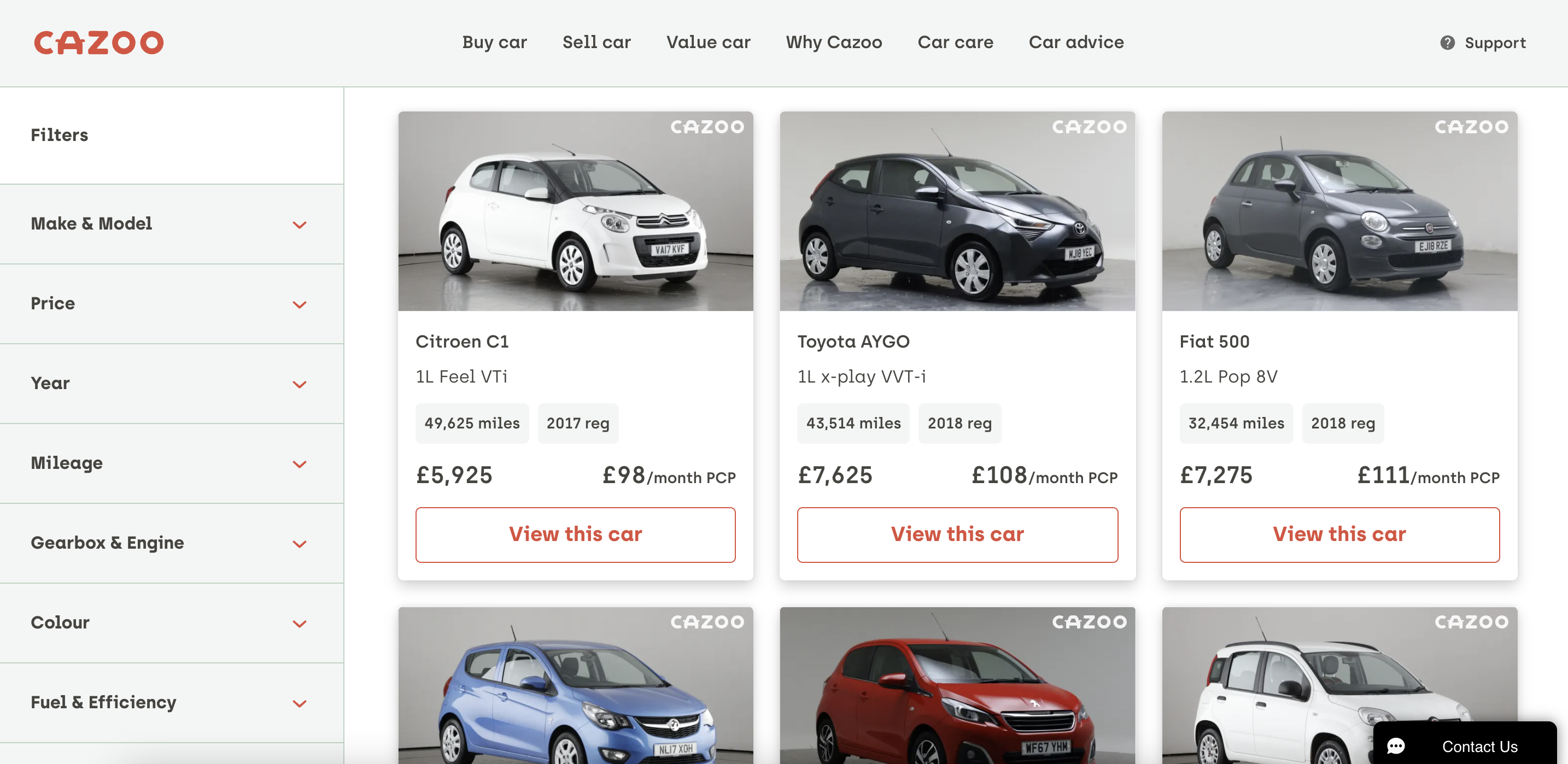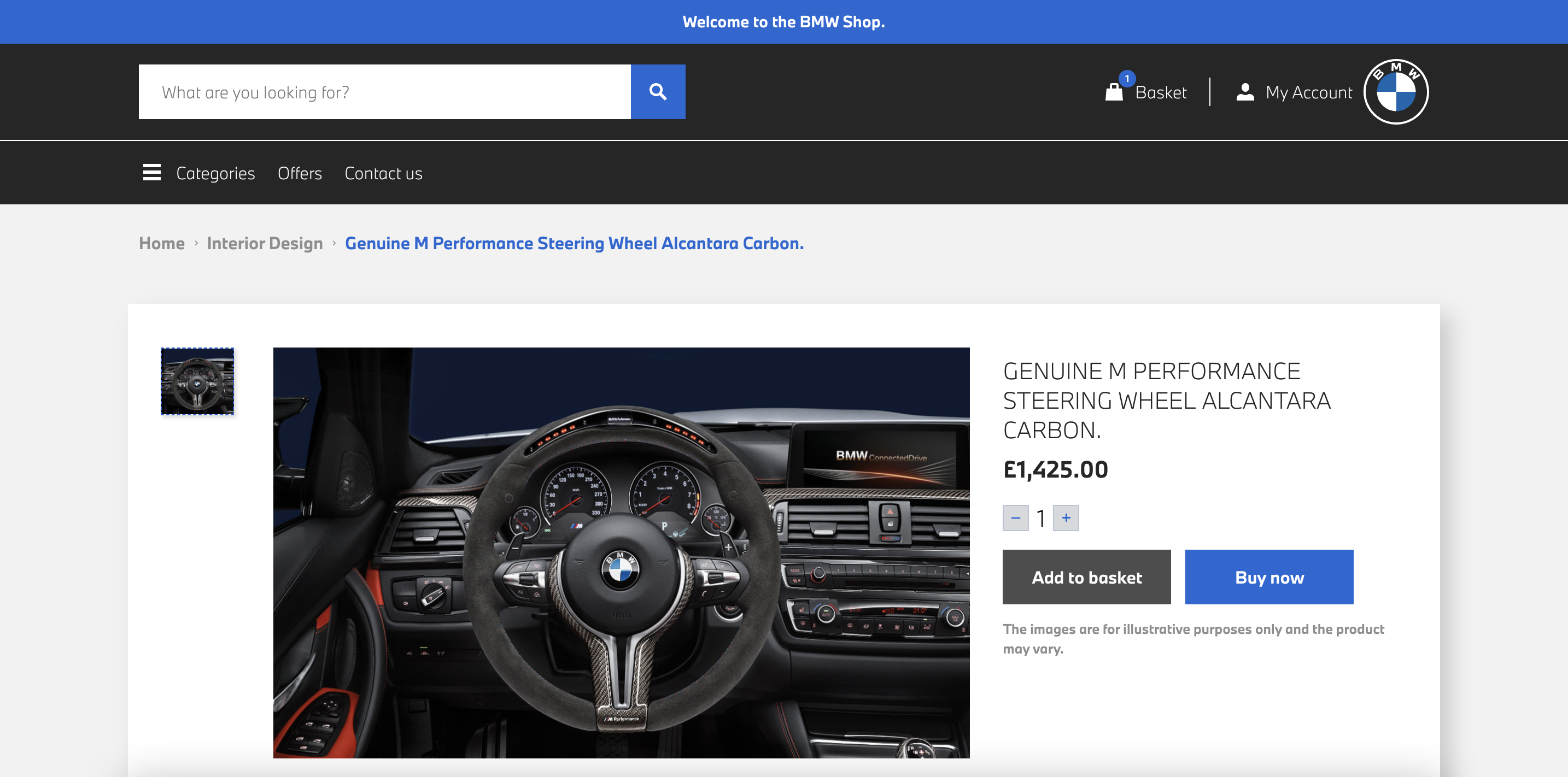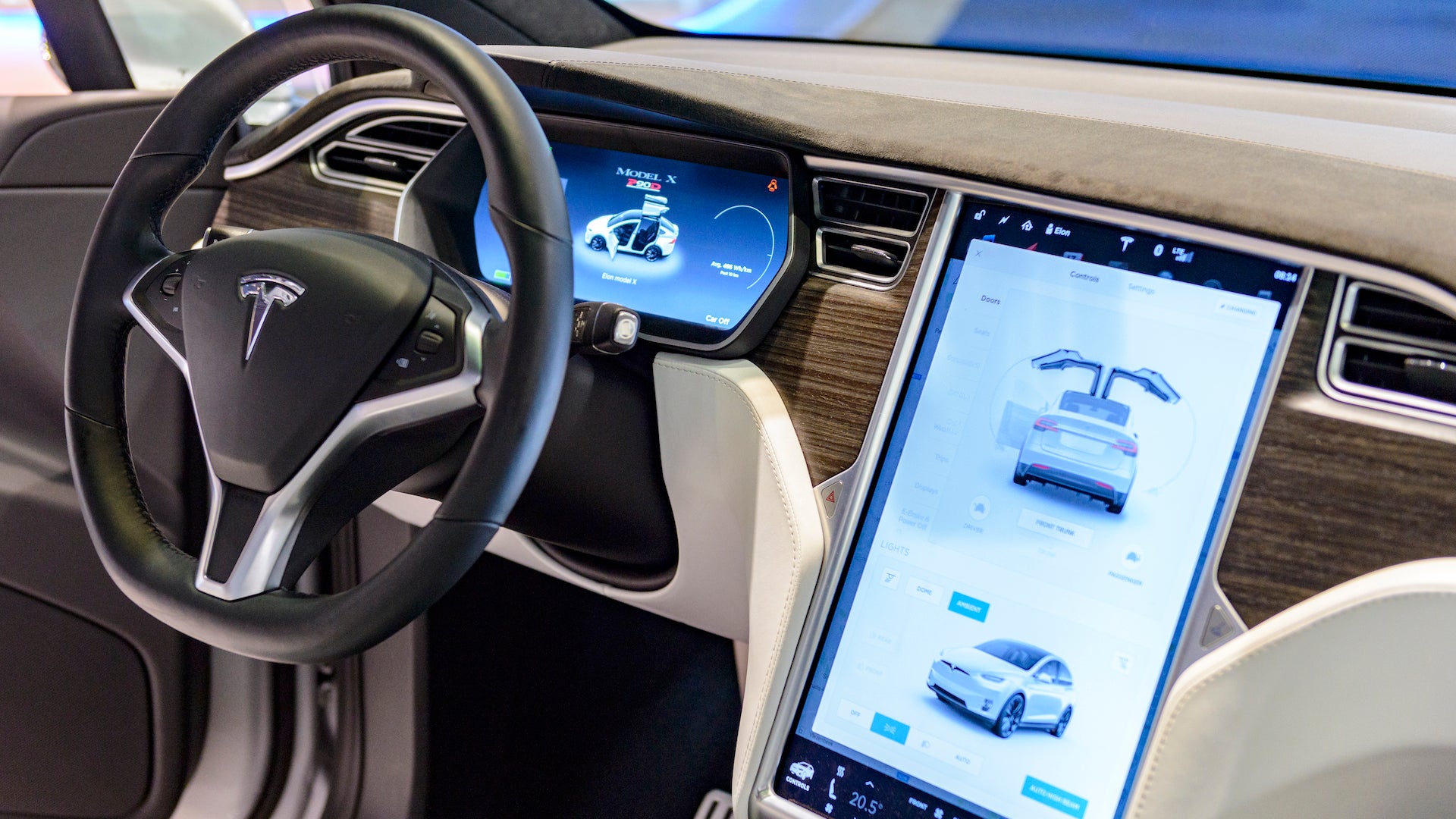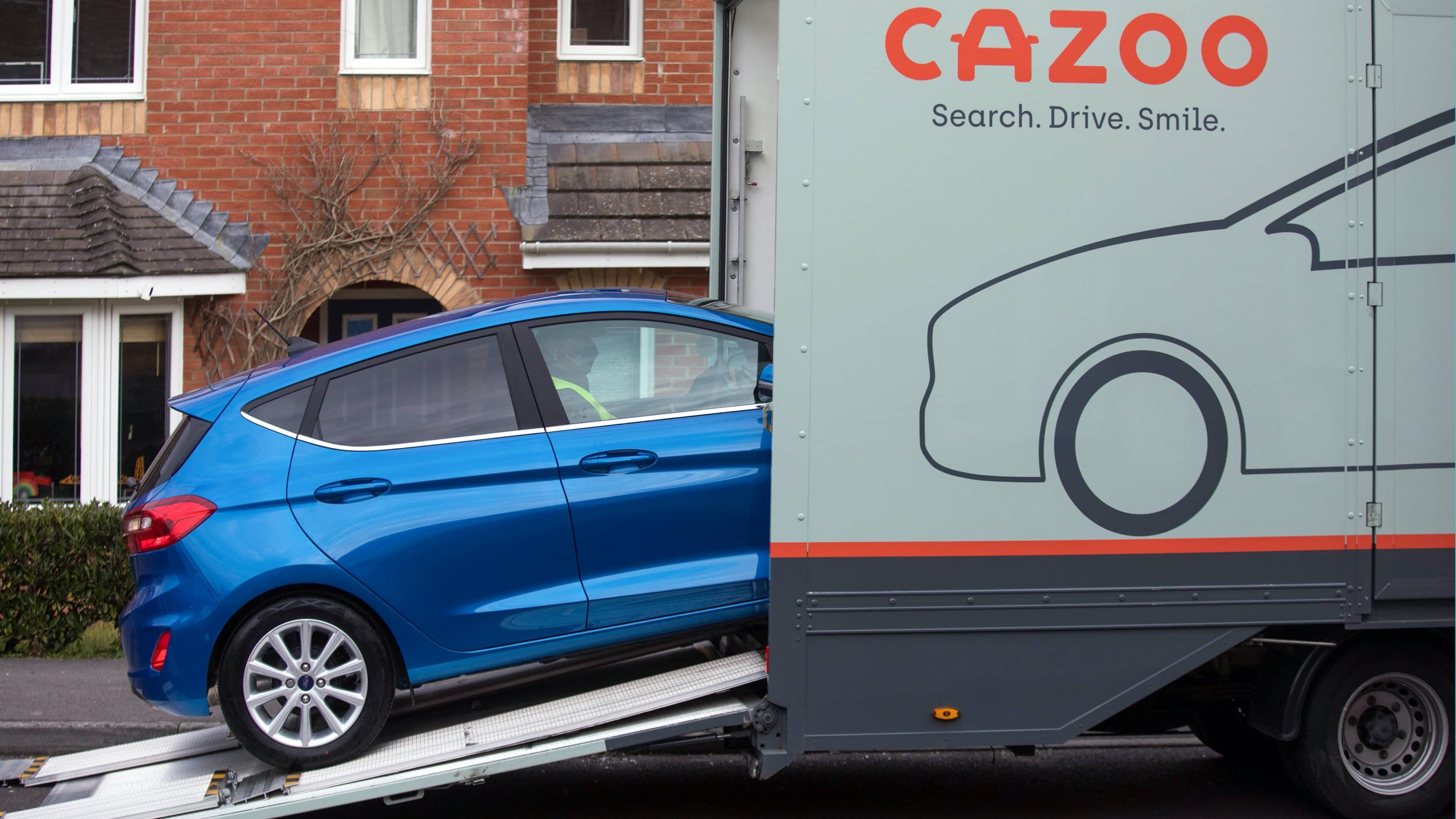Online marketplaces for vehicles are all the noise these days. Take Cazoo, one of the UK’s leading online used car retailers and a tech unicorn, who recently reported revenue increases of up to 600% year-on-year, with plans to go public on the NYSE at $7bn.
With dozens of other start-ups like Cinch replicating this model, and investment money pouring into vehicle marketplaces, is the trend toward buying and selling cars online a temporary fad, or an indicator of the ‘Amazon-ification’ of automotive retail? If the latter, what do companies within the automotive industry need to do in order to retain market share and stay on the competitive vanguard? How will this spill out to vehicle parts, accessories and the wider automotive industry? To what degree will new technologies disrupt the industry?
In this article, we’ll assess how online marketplaces are changing vehicle and part sales, taking a look at some of the key players, and how Autofixa Solutions is at the forefront of this change, helping brands like BMW remain competitive in the face of disruption.
Cazoo — buy a car with a click of a button
As mentioned, Cazoo is one of the UK’s most innovative car retailers that has emerged in recent years to disrupt the automotive industry. But how does it work and what exactly about it is so innovative? Well, as opposed to classified car listing sites such as Autotrader, which connects car buyers and sellers in a non-transactional way (the transaction happens off-site), Cazoo has some novel ways of handling the entire sales process.

For buyers, Cazoo offers a lot of features within its service that remove some of the typical issues you might expect to come across when buying a used car. Firstly, you can buy or finance a car directly from Cazoo entirely online, with the option of having it delivered to your door or collecting it from a Cazoo customer centre within as little as 72 hours. This takes the hassle out of having to travel to meet a seller, where buyers may find themselves haggling over the price, or worse, risk being scammed without an intermediary for protection.
In addition, another problem that Cazoo’s model solves is quality. Instead of having to waste time travelling to meet a seller only to find that the car is not up to scratch, or even worse, stolen, customers can avoid this by using Cazoo. Better yet, they don’t have to worry about buying a car that they later find out has several problems resulting in expensive repairs. With Cazoo, quality comes guaranteed, as they are very careful and selective about which cars they buy, only selling those that meet their high standards of satisfaction.
Cazoo offers both buyers and sellers many other such useful features, but the point remains that they are delivering a safer, more convenient experience than you can expect to get from your typical automotive retailer. Therefore, there is a need and an opportunity within the industry for car retailers to adapt and evolve their offering in order to stay relevant or risk losing market share. The growth of Cazoo offers both a warning and an opportunity for car retailers; customers want the security and convenience of purchasing online, and retailers that do not innovate their proposition to cater to this new category of consumer risk losing out.
BMW — all the parts you need in one place
Another example of a brand which has accelerated its digital transformation in recent years is none other than BMW. In partnership with Autofixa for Platforms, BMW Group UK launched a new digital platform in which BMW and Mini owners can purchase accessories and car parts online. Customers are able to buy parts and accessories that are specifically designed to fit their vehicle by accessing their myBMW account through both desktop and mobile devices. During the buying process, customers have the option to either have the item delivered or use a ‘click and collect’ service where they can pick the item up from their chosen BMW retailer.

As you can see, in terms of customer experience, this service provides a much more convenient and safer journey for BMW owners who are looking for parts or accessories for their car, and this direct-to-consumer (D2C) approach allows BMW to tap into a new stream of direct-to-consumer revenue, previously captured by independents.
Therefore, other automotive retailers are now competing with this higher standard of service that everyday consumers are coming to expect as the norm. This is why it is so important that other automotive brands stay ahead of the curve by innovating their own offering to get on board with this digital shift and provide customers with the service they desire.
Breaking Trends: In-Car Marketplace Ecosystems
Furthermore, an incredibly exciting and futuristic piece of technology that may be on the horizon is the development of in-car marketplace ecosystems. Such a system would work as follows: your car’s system notifies you of a problem with one or more of the components in your vehicle, perhaps your brake pads are nearing the end of their life cycle and need changing.
You would then have the option to access an online car parts marketplace immediately all from the comfort of your seat, ordering the replacement part that you need in one tap of the screen.

If the automotive marque themselves created this marketplace, customers would be able to purchase safely with the knowledge that it’s the perfect product specifically designed to fit their car, and automotive brands would be able to extract more lifetime value from each customer.
As technology moves quickly, it’s important that automotive brands do the same, identifying opportunities before they become mainstream and having a solution already in place.
Digital Shift is Happening
So, we have seen a couple of examples of innovation disrupting the automotive industry, namely Cazoo, BMW and exciting in-car technology.
But how did this change come about in the first place? Well, it’s no secret that a lot of typically physical commerce has been increasingly moving online in recent years – a trend that was only accelerated by the pandemic and lockdowns. Consumers increasingly seek out the convenience offered by companies such as Amazon, in which you can more or less buy anything you want at the click of a button and have it delivered to you the next day. Today’s consumer demands that same level of convenient service with cars, car parts or accessories.
Stay Competitive
In order to stay ahead of the curve, you need to ensure that you have the ability to offer your customers the same level of convenience that they can find elsewhere, perhaps with your competitors and companies similar to those mentioned earlier.
At Autofixa, our solution allows you to build your own marketplace where you can sell your car parts and accessories directly to consumers, providing them with the ease of use that they have come to expect, and maintaining the market share that your business has acquired. In fact, the BMW Group UK online parts store was built by us at Autofixa exclusively for BMW.
Alternatively, if you’re not ready to make the size of investment that a marketplace requires, you can onboard as a supplier on the Autofixa marketplace – the fastest growing marketplace dedicated to vehicle parts, already working with leading vehicle manufacturers.
Whichever your preferred solution, you are taking an important step for your automotive business to compete digitally. Get in touch with our team to learn more.
